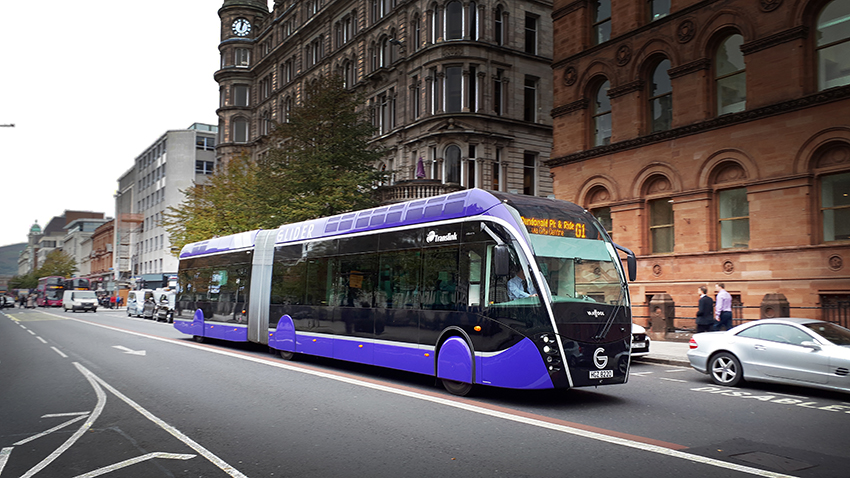Five decades in the transport sector has been enough time for consultant Brian Masson to witness firsthand the evolution of transport planning, and the challenges that have emerged along the way.
As a seasoned member of the industry and an active participant in numerous international committees, Brian has been at the forefront of shaping standards and practices, and is not shy about highlighting problems. Now at the cusp of retirement, one issue still looms large for him: The growing skills gap in transport planning.
Industry ‘sleepwalked’ into issue
Brian’s concerns are not new. As early as 2009, when he was involved with Go Skills, the trade body for training in the transport sector, he identified an impending crisis as the “baby boomer” generation began to retire.
As part of attempts to address the paucity of young people available to take up the mantle, Brian established a transport planning skills gap working group in 2018 with the support of the Chartered Institute of Logistics and Transport, the University of Leeds, ALBUM, the Department for Transport and the Confederation of Passenger Transport. Warnings were sounded that the industry was “sleepwalking” into a situation that would worsen without immediate action.
Now, amid government proposals on bus partnership working and franchising that look promising on paper, Brian questions who will be capable of executing those plans effectively.
Drawing on experience advising political parties, involvement in the EU Buses with High Level of Service committee, and contributing to global initiatives that include the G20 summit in Tokyo, Brian speaks with routeone to stress the urgent need to attract and nurture the next generation of planners, engineers and innovators, through a rethink of how planning is structured.
‘Silo mentality’
“Everything that we knew was going to happen 20 years ago is happening now,” Brian begins, blaming a lack of investment, the centralisation of planning functions among large operators, and an absence of any joined-up strategy, for the current skills shortages. “With no investment, there has been nobody new to do the job. Outside London there has been nobody doing service network development for the last 30 years, and anyone at a senior position before bus deregulation has retired.”
Unless that changes, Brian warns we will spiral further into car-centric cities, growing congestion, and declining bus use.
Although progress on Brian’s skills gap training group slowed when Brexit drew resources away from government (exacerbated by COVID-19) the Department for Transport (DfT) had, according to Brian, recognised that one solution lay in building courses encouraging more school and university involvement in the subject of transport planning.
Taking inspiration from abroad
Brian’s solution begins with an end to silo working. He accuses the UK of being the “silo mentality capital of the world”, rife with housing and developments built with no consideration for bus services, and a focus by local authorities and government on investing in zero-emission bus fleets with no compelling long-term vision on the future of service delivery.
Praising work undertaken in Scandinavian countries, Brian instead calls for a rethink; a future where multi-stakeholder business models focus on putting demographic planning in place for everything from health to industry, education to employment. To enact it, a clear pipeline of talent, beginning at a school level.
“When you are dealing with a people-oriented public service, time must be spent on consultation making sure there is access for buses to new developments. None of that is going on,” adds Brian. “Local authorities need to be trained to understand bus companies. As do those that work in the public transport associations. Government needs to understand the political and cost implications. Where you can get people working together, you get savings and efficiencies, maximised use of existing resources, and people wanting to work in an industry that actually functions. Who, after all, would want to work in a sector seen as shambolic?”
A dramatic reset required?
Brian acknowledges these are big ideas, and nothing that could be solved in the immediate term. A total reset is needed on transport policy. Data could play a part in that, as its full potential within bus has yet to be realised. “The industry has masses of data that is not being utilised,” he says. “We have got to understand people’s mobility needs and get users to sign up and allow bus companies to use data, as Google does, to include them in the design of their daily routines.
“We need that backed up by local solutions that meet needs in local areas, while maximising use of existing resources. If we do have good local operators that are willing to work together, an active local authority and politicians, that’s where the multi-stakeholder business model comes in. We’ve got to do a dramatic reset on what type of transport is required at the local level. That means more demand-responsive transport to get to doctors, dentists, and feeding into hubs. Bus rapid transit works well for the mega cities, but so could bus services, if they were properly coordinated and had taxis and Ubers regulated as public transport, feeding into first mile and last mile journeys.”
Achieving this hinges on maximising skills at a local level. Brian argues against the need for a “national transport plan” where a London model is taken as gospel. Instead, a minimum standard of access to essential local services should be the benchmark the country works towards.
The most nebulous part of such a task is how vision and pride is instilled in young people to encourage passion for transport careers from the school level. “But we need to give people leaving school or studying the belief that transport is a lovely, long-term career that comprises more than just drivers, cleaners and engineers. We need to achieve what has been done in Japan and elsewhere: Giving young people a sense of romance to designing well-functioning towns, and having pride in them, not just making transport planning a box-ticking exercise.”
Getting away from stop-start investment and recognising that bus requires a long-term vision is a hymn sheet few in the industry would not sing to. “But we have to get joined up thinking for that to happen,” Brian concludes. “And it’s time that customers stopped putting up with anything less. We now have the ideal opportunity to say stop, and ask what is the best way forward to get what we need.”




























